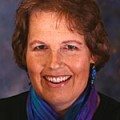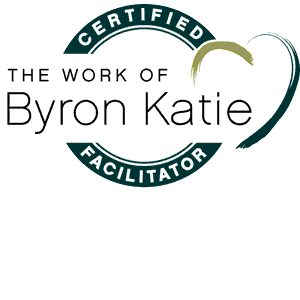About Susan Grace
Wondering about how people work caused me to ask a whole lot of questions from the time I could first talk. As I grew older and life handed me challenges, I found some answers and whole lot more questions.
My life has offered serious challenges, including losing family members to suicide, addiction, and critical injury. These crises have motivated me to help others navigate through life’s difficult passages. What I’ve learned in almost forty years in transformational work is this: Curiosity, deep listening, and courageous questioning can clear confusion and open the door for something far greater.
I hold a Master’s Degree in Counseling. I‘m a Master Coach with Dr. Martha Beck and serve on the faculty of her Licensed Certification Training program. I am also a Certified Facilitator of The Work of Byron Katie and a trained spiritual director. I’m a co-author of a book on family peacemaking and have several other books in the works. I taught writing and archetypal psychology for twenty years, and have garnered lots of knowledge as a curious and committed workshop junkie.
Your life is your prayer.
What are you thinking right now?
That’s your prayer.
Catch yourself in the act of thinking to find out what you’re praying for.
I love the intimate exchange that can occur when two or more of us ask questions and listen for our own deepest truth. I love the momentum that happens when I work with clients to take action on their truth. I love the power of group clarity and support for real change.
I’m blessed to have a husband, a son, and a daughter who are all creative entrepreneurs. Their writing, music, and multimedia work have inspired me, and helped me create my oasis in the Pacific Northwest.
About "The Work"
I offer sessions in which I facilitate The Work alone, and I also often use this powerful process of inquiry as a discrete part of most of my coaching work.
The Work of Byron Katie radically changed my life and my work during the last ten years. Katie has a loving clarity and a great sense of humor. I have found her words to be true when she says: “You can argue with reality, but you’ll lose. Only 100% of the time.”
To become certified by The Institute for The Work, I worked with the process myself and with other facilitators almost daily for two years. I continue to study (and occasionally teach) with the Institute.
From the Blog: Who Would We Be Without Our Stories (or How I Found Inquiry)
An Inquiry example: Susan Grace on Sunny in Seattle radio:
Here’s a quick summary of the Work. I also highly recommend you visit thework.com for lots of inspiration and explanation.
The Work is Four Questions (and your Answers)
Think of a situation that is stressful.
Write a Judge Your Neighbor Worksheet in that situation.
Find your judgments or beliefs.
For any belief, answer these questions:
- Is it true?
- Can you absolutely know that it’s true?
- How do you react, what happens, when you believe that thought?
- Who would you be without the thought?
Turn the Thought Around: to yourself, to the other, to the opposite.
FAQs
How can life coaching help me?
A life coach can help you get a perspective on your life. Most of us live our lives by reacting to what happens to us rather than navigating our way through it. When you see your of your life as a creative design, you can find the clarity and power to navigate more skillfully. And from your understanding of who you are, inside the core of your most essential self, you can design a life that fits.
What do you mean by “soulful coaching and mentoring?”
My training is in spiritual mentoring, a traditional role that has its roots formation of ministry. I think of my work at the Oasis as honoring this tradition while I support clients in their ordinary lives. The more experience I have, the more I have noticed that the spiritual path is grounded in practical details as our soles walk the earth. This is the basis of soulful mentoring.
What should I look for in a life coach or mentor?
A good coach helps you see what you can’t see and holds you to a standard that you help to create. She holds you a place for you to be accountable to yourself as you find and craft the life you want. Often this means making changes and keeping commitments to yourself. And sometimes it means waking up to something freer and kinder in the life you already have.
How is what you do different from therapy?
The focus of much of therapy is on resolving issues from the past. The focus of a life coach, the way I practice, is usually to help you clarify your thinking so you can design your future. It often involves working on the hidden beliefs that keep you from moving forward. This may involve the past, but usually this is secondary.
How often would we meet?
Individual sessions can be effective for getting traction when you’re stuck. A series of at least five sessions is recommended for getting momentum. Monthly mentoring sessions are also available for past clients.
How does Martha Beck’s coaching approach flavor your work?
Martha is creative and brilliant at pulling together scientific research and practicality. As a Master Coach and Instructor in her coaching program, I’m impressed again and again with the workability of her approach. A big emphasis in Martha Beck’s approach to coaching is “thought work,” finding the lies that cause stress and naming them to discover the truth. This is my specialty.
Why the focus on The Work of Byron Katie?
Her simple process of questioning the thoughts that come up as we go about the day is subtle and radical at the same time. The results are often dramatically freeing. I find The Work is helpful for achieving clarity and opening up possibilities in all of life’s challenges, Addiction, body image, aging, illness and death, family challenges, partnership, relationships, sexuality, success and failure, money and work—anything that causes stress.
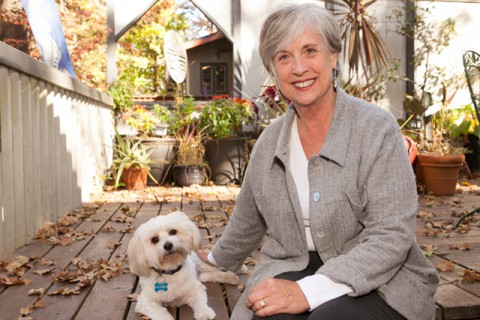





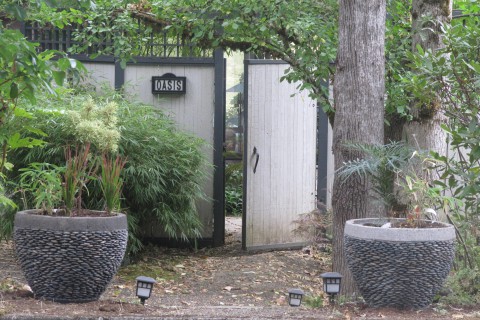






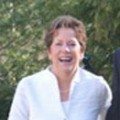



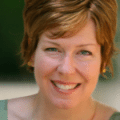






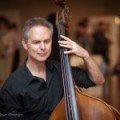






 Working with Susan Grace (she is ‘full of grace’) has been extraordinary for me. Before I went into coach training I didn’t know about Byron Katie’s Inquiry work. Susan introduced me to The Work in our Coach-the-Coach calls. I was not surprised to find out that she is a spiritual director as well as a facilitator of The Work because her guidance opens sacred space for me. In her nourishing way Susan will guide you to your kinder self and ‘shackles off’ possibilities. What a gift!
Working with Susan Grace (she is ‘full of grace’) has been extraordinary for me. Before I went into coach training I didn’t know about Byron Katie’s Inquiry work. Susan introduced me to The Work in our Coach-the-Coach calls. I was not surprised to find out that she is a spiritual director as well as a facilitator of The Work because her guidance opens sacred space for me. In her nourishing way Susan will guide you to your kinder self and ‘shackles off’ possibilities. What a gift! 

 Susan was very important in my life. When I asked her to help me move toward building my coaching practice, I thought I had things figured out and just needed a little support—someone to hold me accountable. But as my path toward this goal took turns I hadn’t anticipated, Susan saw me through confusion, fear, and heartbreak. She helped me stay open to what was unfolding, rather than being blinded by my preconceptions. I have accomplished what I asked for help with…and a great deal more. I am most grateful!
Susan was very important in my life. When I asked her to help me move toward building my coaching practice, I thought I had things figured out and just needed a little support—someone to hold me accountable. But as my path toward this goal took turns I hadn’t anticipated, Susan saw me through confusion, fear, and heartbreak. She helped me stay open to what was unfolding, rather than being blinded by my preconceptions. I have accomplished what I asked for help with…and a great deal more. I am most grateful!

